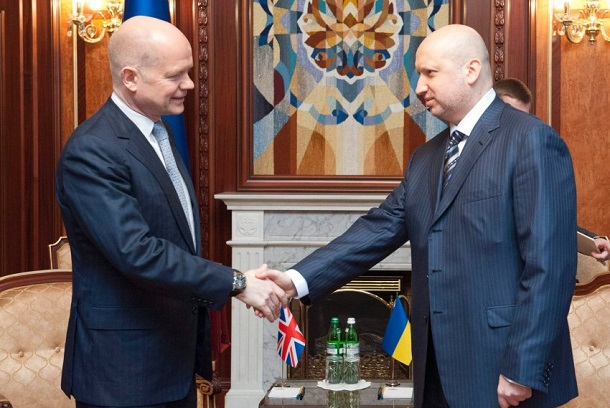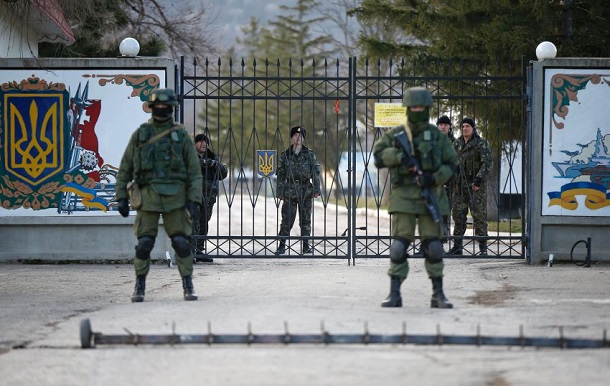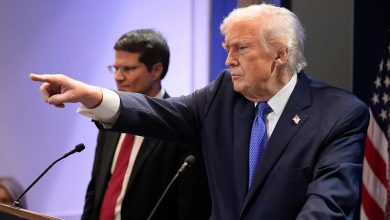Russia apparently sends more troops to the Crimea, the Ukrainian central government makes mobile. On the peninsula the situation threatens to escalate further. So it could go – three crises scenarios.
For Britain’s Foreign Secretary William Hague is the biggest crisis in Europe in the 21st Century: In the Crimea Russia increases military pressure. Ukraine reported that more armored vehicles had ascended to the Russian coast towards the peninsula. Interim prime minister Arseniy Yatsenyuk spoke on Sunday of a declaration of war by Russia to his country. (The latest news development, photos and tweets can be found in the Live Ticker here.)
Can a confrontation between Ukrainian and Russian soldiers still be prevented? Hans-Henning Schröder, Russia and Eastern Europe expert at the prestigious Institute for International and Security Affairs (SWP) in Berlin, holds the following three scenarios possible:

1. War between Russia and Ukraine
In the worst case, Ukraine mobilized against the Russian soldiers. It comes at the borders to the Crimea or on the peninsula itself to deadly battles. Russia makes the situation escalate and marches with more soldiers. Maybe the struggles encompass other parts of Ukraine. The West will probably not intervene, but impose sanctions against Moscow. So far, President Putin was threatened with cancellation of the membership of the G8.
2. Negotiations with the deployment of observers

Ukrainian representatives and the Russian government sit down at a table and negotiate. This could be done under the aegis of the United Nations or the Organization for Security and Cooperation in Europe (OSCE), as well as from all important actors such as Russia, the USA, European countries and the former Soviet Union are represented. The OSCE is currently advising in Vienna to send an observer team to the Ukraine.
As a compromise, all players could recognize the territorial integrity of Ukraine. At the same time would Kiev the various ethnic groups in Ukraine – especially the Russians and the Crimean Tatars – assure rights and make guarantees. OSCE observers could ensure that everyone adheres to the agreements. These are also in use in Georgia, where he had a conflict between the government and Russia in 2008.
This version is supported by the German Government: Instead of focusing immediately on tough sanctions against Russia, should first be spoken to each other. Russians and Ukrainians could be composed in a contact group. In the next few weeks may OSCE observers will be sent to prevent an escalation. Maybe the UN could be used.
3. Disintegration of Ukraine
The new Ukrainian transitional government is unable to regain control of the country. Not only in the Crimea, in other parts of the east of the country it comes to divisive efforts. In the Crimea and in the east of the country, the regional leaders turn to Russia and ask for assistance. There arise Russian protectorates, where the government in Kiev has nothing more to say. The Ukraine is thus significantly reduced.
Which scenario is most likely, it is too early to judge effectiveness. “The West and Russia are relatively predictable,” says Hans-Henning Schröder. But whether the Ukrainian government does manage to reasonably control of their territory is unclear. “That’s still the big question mark,” said Schroeder.
Error, group does not exist! Check your syntax! (ID: 12)



